- Undergraduate Course List
- Past Course Syllabi: Find course syllabi from recent years.
- Course Selection by Theme: Four example course lists based on Biological themes. The themes correspond to the different research focus of faculty within the Department, and give you a starting point for developing your own degree plan.
- Field Courses: Field courses offer an amazing opportunity to gain hands-on experience in Biology, and apply concepts learned in the lecture halls to real-life discovery in nature.
What does a BIOL MAJ offer?
Major Maps → Biology Major
Statistics in Biology
Statistics is a core skill in Biology. The introductory statistics and data management course is BIOL 243/3.0, which emphasizes the statistical literacy that is relevant for different Biological fields.
An introductory statistics course is strongly recommended for BIOL 300. Without the background obtained in BIOL 243 or a comparable introductory statistics course students will be disadvantaged and will probably need to do additional work to make up for shortfalls in their knowledge and use of statistics. Please refer to the undergraduate calendar for additional information on the specific exclusions associated with BIOL 243/3.0 and the role of this course in our different degree plans and programs.
The advanced statistics course is BIOL 343/3.0, which prepares students for the types of analysis used in honors thesis project.
Advanced Lab Courses
Biology offers a number of advanced lab courses. These courses provide hands on training in practical and theoretical aspects of many basic and advanced tools and techniques used in research labs; they also help to develop critical thinking and problem solving, as well as excellent oral and written scientific communication skills. These are courses that most potential supervisors in MCIB (i.e. Molecular, Cell and Integrated Biology) and many in EEB (Ecology and Evolutionary Biology) research hope to see on your academic transcript. If you are considering applying for a lab volunteer or summer research (e.g. SWEP) position, a BIOL537 thesis project in your 4th year, and possibly continuing with graduate (MSc/PhD) studies and research then you should plan to take as many of the following courses as possible. They are often taken in year #3 of the BSc program, but some Biology undergrads have also completed them during year #2 and/or year #4 of their BSc.
Honours Thesis Course
The Honours Thesis Course (BIOL 537/12.0) is one of the capstone experiences offered to Biology students. It allows students to work on their own independent research project under the supervision of a faculty member in the Biology Department or from a professor cross-appointed to the Biology Department. Students gain experience in the full range of activities involved in doing research in Biology, including project design, data analysis and interpretation, literature review, scientific writing, oral presentation and interactive collaboration with colleagues.
Advanced Honours Seminars
The Honours Seminars courses are numbered from BIOL 501/3.0 to 536/3.0 and focus on a specialized topic of a faculty members' research. These courses provide one of the capstone experiences to Biology students with small class sizes and an emphasis on reading and/or experimental enquiry.
Research Mentorship
Biology 538 (3.0 unit), 539 (3.0 unit) and 540 (6.0 units [a full-year two-term]) offer individual students the opportunity to undertake a laboratory research practicum under the supervision of a biology faculty member. In addition to volunteer work in the host lab, students will attend BIOL537 seminars (Fall and/or Winter) and conduct research to present both as a major paper and seminar. BIOL 538 is a prerequisite to BIOL 539 - which is intended for students who wish to do a second follow-on 3.0 units research mentorship after completing BIOL 538.
Students will normally be enrolled in the fourth year of their Program, having completed the third year core requirements of their Plan. Full details of all three courses
Independent Studies Courses
On rare occasions and exceptional circumstances, the Department may consider offering individualized credits to students who wish to pursue independent studies courses that do not fit within the conventional academic setting and are based outside the university infrastructure. Such decisions are at the discretion of the Chair of Undergraduate Studies.
